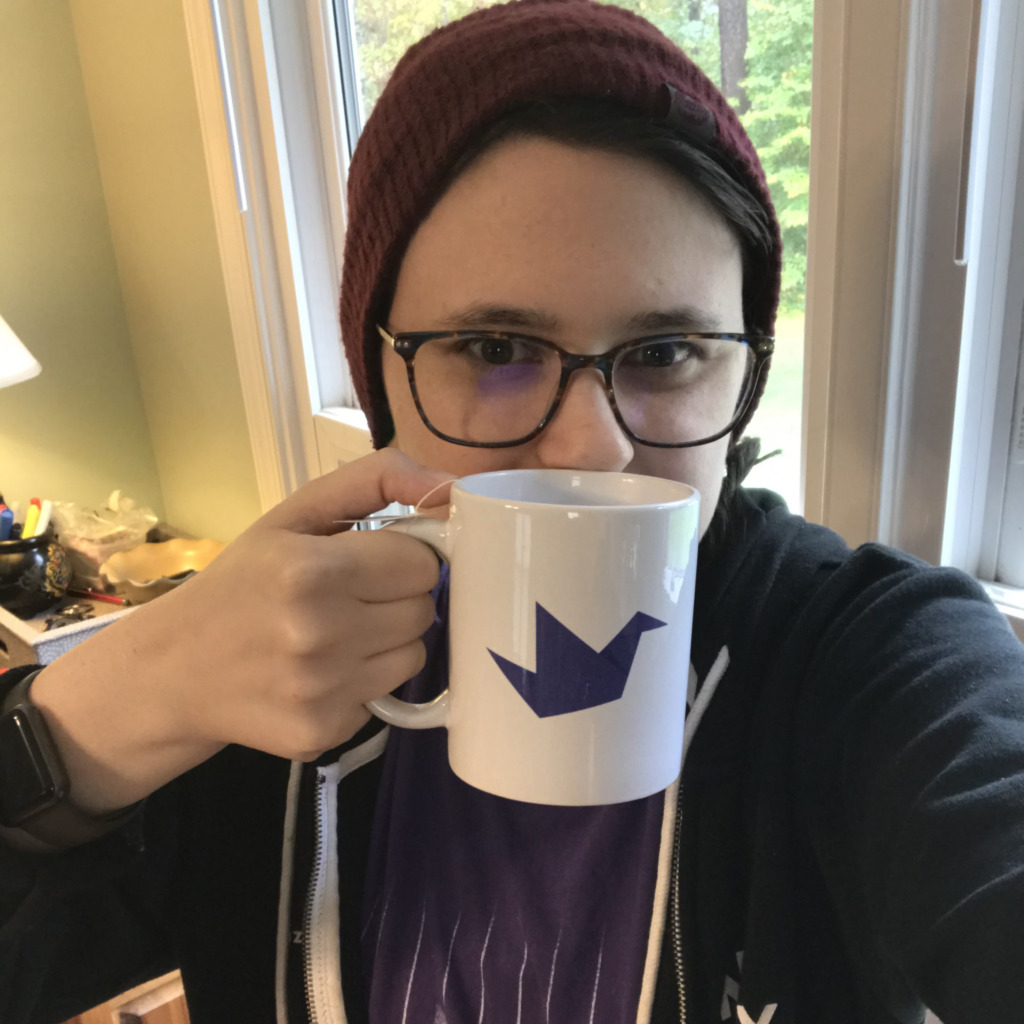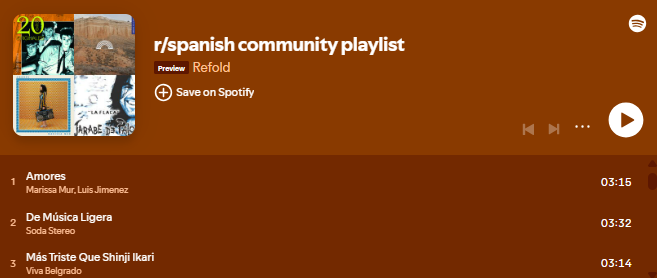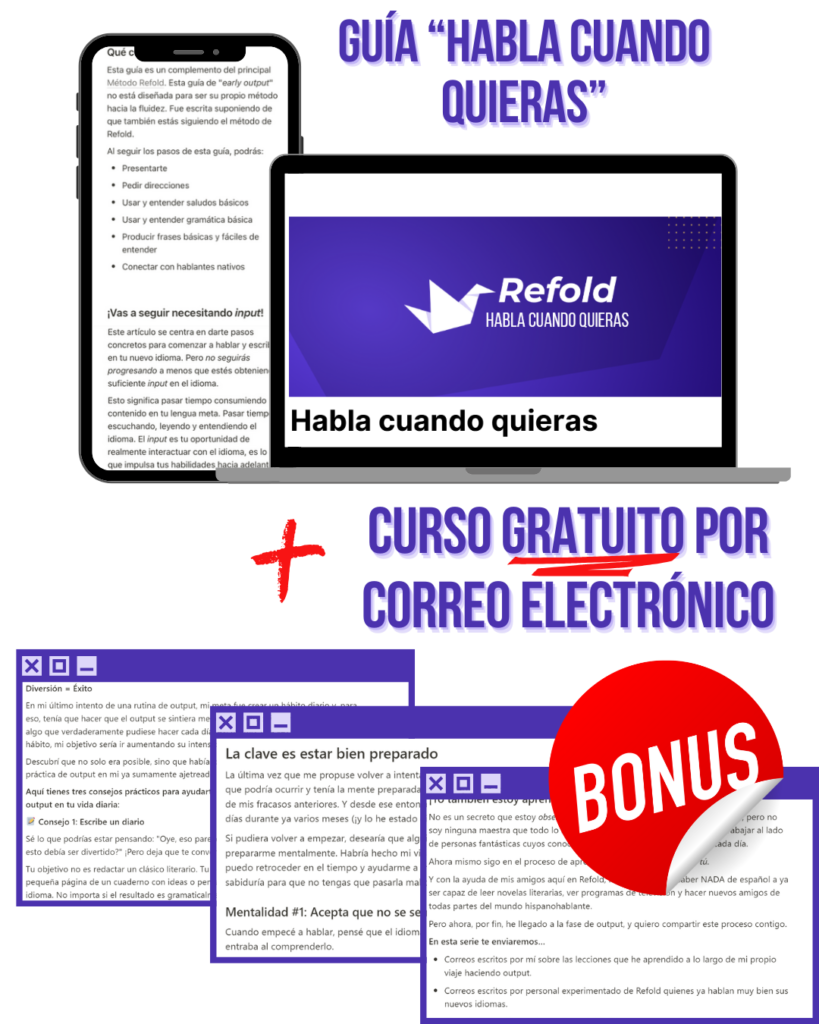Hey, language learners! Bree here! I’ve been learning Spanish for quite some time now, so I’m a bit embarrassed to admit that despite being an avid reader, I still have some huge gaps in my vocabulary. But I learned how to improve vocabulary in a foreign language, and I’m going to share what I learned with you!
(Woohoo, aren’t you glad you get to learn from MY mistakes?)
The Issues I Had With Learning Vocabulary
Learning vocabulary is a lot of fun with immersion learning. You see words over and over again in your favorite media, and over time, you acquire them naturally!
I learned so much more from reading books and watching TV shows in Spanish than I ever did in my traditional classes. (Like, 1,000x more…no exaggeration.)
However, despite being an avid reader, I hit a wall with my vocabulary knowledge.
Why? I’m a sci-fi and fantasy addict.

While it’s true that you’ll acquire the most common words regardless of what content you consume, it turns out that reading about spaceships and enchanted forests isn’t how to improve your vocabulary for everyday things. It’s not going to help you learn how to describe what you do for a living or talk about your home.
I mean, I can explain how a fictional sprite can merge into a magical sword, but I still struggle to ask for a mixing bowl in Spanish!
So, if you’ve run into the same problem with your language and you’ve been wracking your brain, asking yourself, “How can I improve my vocabulary in a foreign language?” You’re in the right place!
How to Improve Your Vocabulary in a Foreign Language With How-To Articles
To improve your vocabulary, try googling “how to” articles in your target language to target any vocabulary gaps you might have.
For example, I really struggle with household vocabulary, and lately, I’ve been really into re-organizing my house to maximize the (little) amount of space that I have. I’ve really enjoyed the process, but I needed some help brainstorming and coming up with a plan.
So, instead of looking up how to tackle my issues in English, I looked up guides in Spanish! And it did not disappoint! I discovered a wealth of content that I had never even thought about reading before, like…
- How to organize your kitchen.
- Home gadget product reviews.
- How to care for houseplants.

But you don’t have to limit yourself to these topics! You can find articles about just about any interest or hobby!
It doesn’t matter if you…
- Want to get into beekeeping…
- Need to build a new deck…
- Want to use your phone less…
- Are looking for ways to balance your work/life schedule…
You can read all about it in your target language! Personally, after I tackle household vocab, I’ll tackle time management next! (Lord knows I desperately need it. 🫠)
Like what you see?
Sign up now and we'll deliver even MORE amazing content like this right to your inbox!
- Receive our exclusive 6 SECRETS to language learning success email course.
- Stay motivated with weekly emails overflowing with helpful language-learning tips, tutorials, and more!
- Get behind the scenes access into the inner workings of Refold!
Get our 6 SECRETS to language learning success
Why Blogs and Magazines are GREAT for Immersion Learning

Not only was the content useful, but I found that the way the authors wrote was perfect for immersion learning because of how interesting and helpful they were.
Unlike books or news articles, which can sometimes feel a bit formal, stiff, or use words I’d never use in real life—blogs and magazines often have a friendly, conversational tone. The language feels much more like what people use in real-life conversations, which made it so much easier for me to connect with the material.
They also use a writing style that I want to emulate. Casual, yet informative, with a healthy mix of personality and practical advice.
As I read more, I found myself noticing and learning vocabulary and phrases that I knew I could use in day-to-day conversations. And I don’t just mean things like the word for drawer or mixing bowl, but things like….
- How to use connector phrases to connect ideas naturally.
- How to write clear instructions.
- How to describe your own home, etc.
How to Go Beyond Improving Your Vocabulary…

I found reading these articles so helpful that I decided to use them for even more things than just improving vocabulary. I decided to try to use them for journaling and copywork practice. But I’m running out of (virtual) paper in this blog post. Luckily, I wrote separate blogs about these activities, and you can check them out by clicking the buttons below.
That’s it for today!
In short, if you’re trying to improve your vocabulary in areas that go beyond the basics or your niche interests (like my love for sci-fi and fantasy), blogs and online magazines can be a game-changer.
So, if you’re in the same boat as me, try searching for some magazines and blogs in the language that target your knowledge gaps. Who knows, you might discover your new favorite immersion content and unlock tons of useful vocabulary!
Like what you see?
Sign up now and we'll deliver even MORE amazing content like this right to your inbox!
- Receive our exclusive 6 SECRETS to language learning success email course.
- Stay motivated with weekly emails overflowing with helpful language-learning tips, tutorials, and more!
- Get behind the scenes access into the inner workings of Refold!








